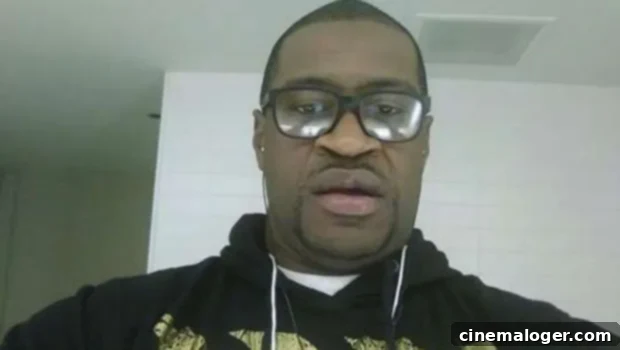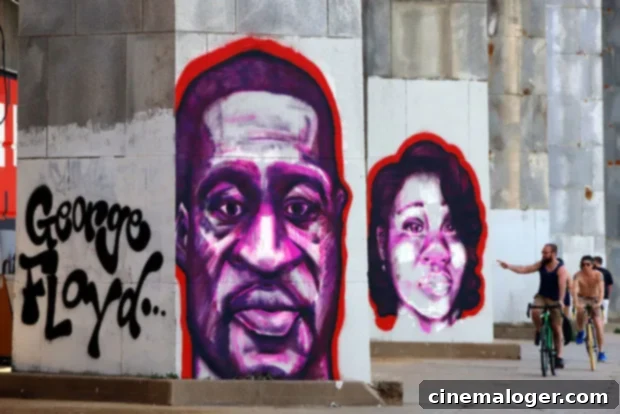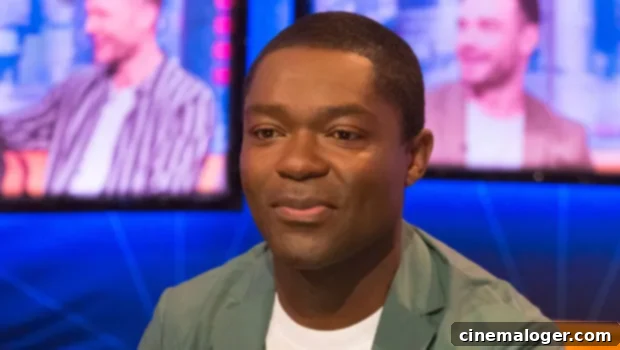David Oyelowo’s Profound Grief: Confronting Systemic Racism and Fatherhood After George Floyd’s Death with Oprah Winfrey
In a deeply moving interview on Oprah Winfrey’s town hall dedicated to addressing the pervasive issue of racism, acclaimed actor David Oyelowo, renowned for his powerful portrayal of Dr. Martin Luther King Jr. in the 2014 historical drama ‘Selma’, bravely opened up about the profound emotional toll taken by the tragic death of George Floyd. Oyelowo shared a heartbreaking account of his personal struggle to process the excruciating video of Floyd’s final moments, and the visceral pain of hearing his own son express inconsolable grief over the incident. His candid reflections highlighted not only his individual anguish but also the collective trauma experienced by Black families across the nation and the world, grappling with the persistent specter of racial injustice.
During Oprah Winfrey’s seminal two-part town hall event, titled “Where Do We Go From Here?”, which aired on June 9th, David Oyelowo, 44, articulated with raw honesty how the senseless killing of George Floyd had utterly devastated both himself and his son. The award-winning actor delved into the profound reasons why the widely circulated video of Floyd’s death remained indelibly etched in his mind, causing him immense distress. Oprah, 66, initiated the conversation by referencing an emotional Instagram video Oyelowo had posted shortly after witnessing the harrowing footage. In the clip, Minneapolis police officer Derek Chauvin was seen kneeling on George Floyd’s neck for nearly nine agonizing minutes, ultimately leading to his death. Winfrey pressed Oyelowo on his decision to share such intensely personal and strong feelings with the public, recognizing the courage it took to reveal such vulnerability.
“I posted it because I have made the mistake of thinking that things would be different for my son,” David Oyelowo confessed to Oprah during their live video discussion for the town hall, his voice tinged with emotion. Oyelowo, who earned widespread critical acclaim for his embodying of Dr. Martin Luther King Jr. in Ava DuVernay’s ‘Selma’, further elaborated on this sentiment. “I say mistake because I had watched things progress in some ways and then the knee on the neck is so symbolic of so much,” he explained, pointing to the stark visual as a powerful representation of systemic oppression and the crushing weight of racial injustice that continues to plague Black communities. He admitted that the incident had unearthed deep, previously unacknowledged wounds within himself. “It’s something I didn’t realize that I had internalized in a way that makes it difficult for me to function, I didn’t realize how deep the wounds were. I have spent so much of the last two weeks crying and one of the moments when that began is when I went to speak to my son and I didn’t have the words.” This confession painted a vivid picture of the silent, enduring pain that often lies beneath the surface for many, suddenly brought to the fore by such blatant acts of injustice.

Oyelowo continued, articulating the profound challenge he faced in trying to explain the situation to his son, largely due to a crucial detail he observed in the video: George Floyd was unequivocally “wasn’t resisting arrest.” This fact made the conversation exponentially more difficult, as it contradicted the common, albeit agonizing, advice Black parents often feel compelled to give their children regarding interactions with law enforcement. “It’s not like saying to my son, ‘Put your hands on the dash, don’t be confrontational…’ Those conversations are already emasculating, to basically say forget about justice in an interaction with the police,” Oyelowo lamented. The implicit message in such advice—to prioritize survival over seeking justice—is a heavy burden for any parent to place upon their child. He encapsulated this stark reality with a chillingly simple yet profound instruction: “Come home alive.” This phrase underscores the terrifying daily reality for many Black families, where the paramount concern during police encounters is merely the safe return of their loved ones, often at the expense of their dignity or rights.

David Oyelowo, a father of four children, including sons Asher, 18, and Caleb, did not specify which son he was referring to when he spoke of their reaction to George Floyd’s death. Nevertheless, his sentiments resonated deeply, reflecting the pervasive fear and deep-seated anxiety that many African American children and young adults are forced to grow up with in today’s society. The weight of potential racial profiling and state-sanctioned violence looms large, casting a shadow over their lives and childhoods. In the aforementioned social media video, which Oprah Winfrey highlighted during their candid town hall interview, the British actor elaborated in painstaking detail about the moment he heard his son crying over the tragic fate of George Floyd, painting a picture of a father’s helplessness in the face of such profound sorrow and injustice.
View this post on InstagramA post shared by David O (@davidoyelowo)
“I was walking past his bedroom and I heard sobbing and I went in to see my son and he was broken because he didn’t quite understand the world he had graduated into,” Oyelowo recounted tearfully in his June 4th Instagram video. This powerful statement encapsulates the profound loss of innocence experienced by young Black individuals as they confront the harsh realities of systemic racism. He added with palpable despair, “And I couldn’t give him any comfort.” This heartbreaking admission highlighted the overwhelming helplessness many Black parents feel when faced with the inability to shield their children from the pain of racial injustice, a pain that seems to transcend generations. Oyelowo went on to articulate the broader implications of racial injustices impacting countless other African Americans, expressing a deep sense of vulnerability. He concluded his heartfelt address by stating emphatically that he doesn’t feel “safe” in a society where such atrocities occur. His ultimate desire, he stressed, is to see a tangible and lasting “difference” in the landscape of racism, not only for the sake of his sons but for the entire world, envisioning a future where such tragedies are consigned to history.
Oprah Winfrey’s “Where Do We Go From Here?” Town Hall: A Crucial Platform for Dialogue
Oprah Winfrey’s two-part town hall, significantly titled Where Do We Go From Here?, served as an indispensable platform for a much-needed national dialogue on racism in America. Airing across Discovery and OWN networks, the event brought together prominent Black voices, thought leaders, activists, and celebrities like David Oyelowo to share their raw experiences and perspectives. The town hall aimed to move beyond mere acknowledgment of racial disparities, pushing towards concrete conversations about systemic change, reconciliation, and the path forward. Oyelowo’s contribution, rooted in his personal agony and his familial fears, underscored the deeply human and emotionally devastating impact of racial injustice. His story, amplified by Oprah’s powerful platform, helped to illuminate the intimate pain behind the headlines, making the abstract concept of systemic racism profoundly relatable and urgent for a broad audience. The event underscored the critical role of media in fostering understanding and mobilizing action against racial inequality, especially during a period of intense social upheaval and calls for justice following George Floyd’s death. It served as a testament to the ongoing fight for civil rights, echoing the historical struggles that figures like Dr. Martin Luther King Jr., whom Oyelowo so authentically portrayed, dedicated their lives to overcome.
The dialogue initiated by Oprah and the powerful testimonies shared by guests like David Oyelowo aimed to inspire both empathy and proactive engagement from viewers. By focusing on the emotional and psychological toll of racism, the town hall sought to galvanize individuals and institutions into meaningful action. Oyelowo’s specific appeal for a “difference” in the world for his son speaks to the hope for a future where fear and injustice are replaced by safety and equity. His personal connection to the civil rights movement through his acting work in ‘Selma’ further cemented the historical context of the current moment, reminding audiences that the struggle for true equality is a continuous journey that demands constant vigilance and renewed commitment from all segments of society. The echoes of past injustices, as felt by Oyelowo and his son, resonate with the urgency for present-day solutions and a transformative shift in societal norms and practices.
